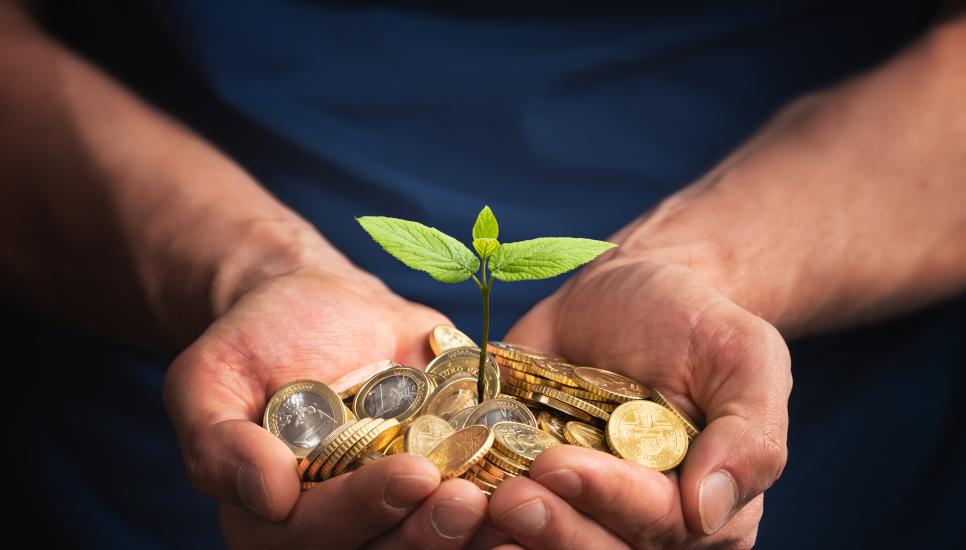Families ramp up sustainable and impact investments in response to Covid-19 and climate change

Wealthy families, foundations and individuals with an estimated total net worth of $328 billion are accelerating their interests in sustainable and impact investing to an unprecedented level, propelled by the Covid-19 pandemic and climate crisis.
An overwhelming majority surveyed by Campden Wealth in 2021 said the transition to net-zero emission was the “greatest commercial opportunity of our age”. Investors were aligning their portfolios with their climate-conscious commitments and the United Nations’ Sustainable Development Goals.
 Sustainable and impact investing, once a niche allocation, had firmly entered the mainstream, with nearly half of self-described “traditional investors” adopting ESG criteria when investing. Impact investments delivered resilient financial returns in 2020, meeting or exceeding expectations for the majority.
Sustainable and impact investing, once a niche allocation, had firmly entered the mainstream, with nearly half of self-described “traditional investors” adopting ESG criteria when investing. Impact investments delivered resilient financial returns in 2020, meeting or exceeding expectations for the majority.
However, many wealth holders surveyed called for more action from governments to meet Paris Agreement targets to limit global warming. Respondents were sceptical this year’s United Nations Climate Change Conference (COP26) would make much headway in tackling climate change.
Families and individuals were wary of investment greenwashing and sought reassurance most from robust measurement and reporting.
• 86% of high net worth individuals, family offices and foundations believe their private capital will be “essential” in addressing climate change
• 79% agree that governments’ pandemic stimulus packages should prioritise green investment and the transition to a low carbon economy
• 70% see the transition to a global net zero emissions economy as “the greatest commercial opportunity of our age”
• Wealth holders already active in sustainable investing expect it will constitute, on average, 47% of their portfolios in 2022 and 54% by 2027

Those findings and more feature in the new of Investing for Global Impact: A Power for Good 2021 research report which launched today. The eighth edition was produced by Campden Wealth on behalf of Global Impact Solutions Today (GIST) and Barclays Private Bank. The report delves into the attitudes and actions of the world’s wealthiest individuals, families, family offices and their foundations in generating positive impact with their capital.
Dr Rebecca Gooch, director of research at Campden Wealth, said sustainable investing was gaining steam among ultra-high net worth investors. Covid-19 had only acted as an accelerant.
“While many want to use their wealth to combat the climate crisis, they also recognise that the rapidly expanding ‘green industry’ is an incredible investment opportunity,” Gooch said.
“Sustainable investment returns are now successfully competing against those of traditional investments, and evidence of their effectiveness at tackling global challenges is becoming increasingly hard-hitting. In turn, a growing number of private investors are opting in.
“Given that single family offices alone manage more than $6 trillion in assets worldwide, this is helping to propel the industry forward at a time when sustainable solutions are needed most.”
 Gamil de Chadarevian, founder of GIST, said the world’s social, health and environmental problems could only be mended with dynamic actions and tangible goals.
Gamil de Chadarevian, founder of GIST, said the world’s social, health and environmental problems could only be mended with dynamic actions and tangible goals.
“To regenerate our environment, economy and democracy, good intentions alone will not suffice,” de Chadarevian said.
“Prominent families, like those who contributed to the research, have a combination of expertise and capital to play a leading role for the future of our planet.”
Damian Payiatakis, head of sustainable and impact investing at Barclays Private Bank, said it was encouraging that leading global wealth holders sought to play a role in the fight against climate change. In conversations, he heard wealth holders express both a responsibility and an opportunity to use their capital at this pivotal point.
“While we see heightened awareness, action does not always immediately follow,” Payiatakis said.
“Moreover, navigating the rapidly growing green investment market is increasingly difficult. So we’re having to work more to help individuals and family offices articulate the impact they want to make; and then find high-quality investments that will actually contribute to the solutions to counter climate change as well as target the returns they want.”






